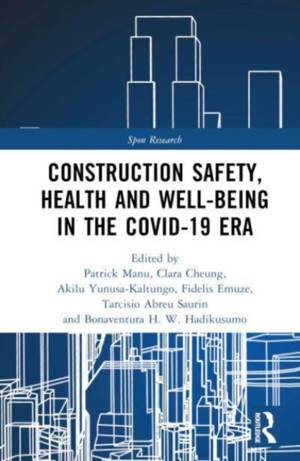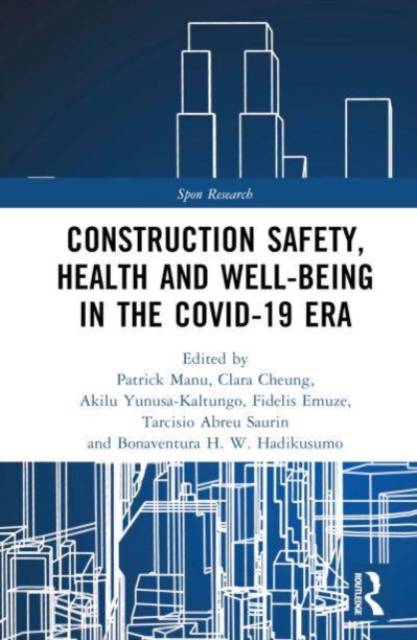
- Retrait gratuit dans votre magasin Club
- 7.000.000 titres dans notre catalogue
- Payer en toute sécurité
- Toujours un magasin près de chez vous
- Retrait gratuit dans votre magasin Club
- 7.000.0000 titres dans notre catalogue
- Payer en toute sécurité
- Toujours un magasin près de chez vous
Construction Safety, Health and Well-Being in the Covid-19 Era
Description
This edited book presents a significant and timely contribution to our understanding of a broad range of issues pertaining to COVID-19 and its relationship to occupational safety, health and well-being (OSHW) in the global construction industry.
The editors first introduce the industry and its poor OSHW history before highlighting some of the broader impacts of the pandemic on the sector. The book is then divided into two sections. Section One focuses on the management of COVID-19 transmission risk. It captures insights, practices, technologies and lessons learned in relation to what has and is being done to prevent or mitigate the risk of COVID-19 transmission among the construction workforce. Construction Safety, Health and Well-being in the COVID-19 Era also details case studies, lessons and best practices for managing sites and workforces when infections inevitably do occur. Section Two brings together international chapters discussing the impacts of COVID-19 on the OSHW of the construction workforce both on and off-site, as well as the management of those impacts. Furthermore, this presents implications of the pandemic (at the short-, medium-, and long-term) for other performance measures of construction projects such as cost, schedule, quality and, most importantly, how the pursuit/non-pursuit of such performance measures have impacted/will impact the OSHW of construction workers and professionals in the industry.
This book addresses the gap in literature by offering global perspectives on the OSHW impacts and implications of COVID-19 in the construction industry and will help its wide readership (including construction industry organisations, professionals, researchers, government bodies/policy makers and students) to understand a broad suite of issues pertaining to COVID-19 and its relationship to OSHW in construction.
Spécifications
Parties prenantes
- Editeur:
Contenu
- Nombre de pages :
- 360
- Langue:
- Anglais
- Collection :
Caractéristiques
- EAN:
- 9781032229157
- Date de parution :
- 12-09-23
- Format:
- Livre relié
- Format numérique:
- Genaaid
- Dimensions :
- 156 mm x 234 mm
- Poids :
- 716 g

Les avis
Nous publions uniquement les avis qui respectent les conditions requises. Consultez nos conditions pour les avis.





